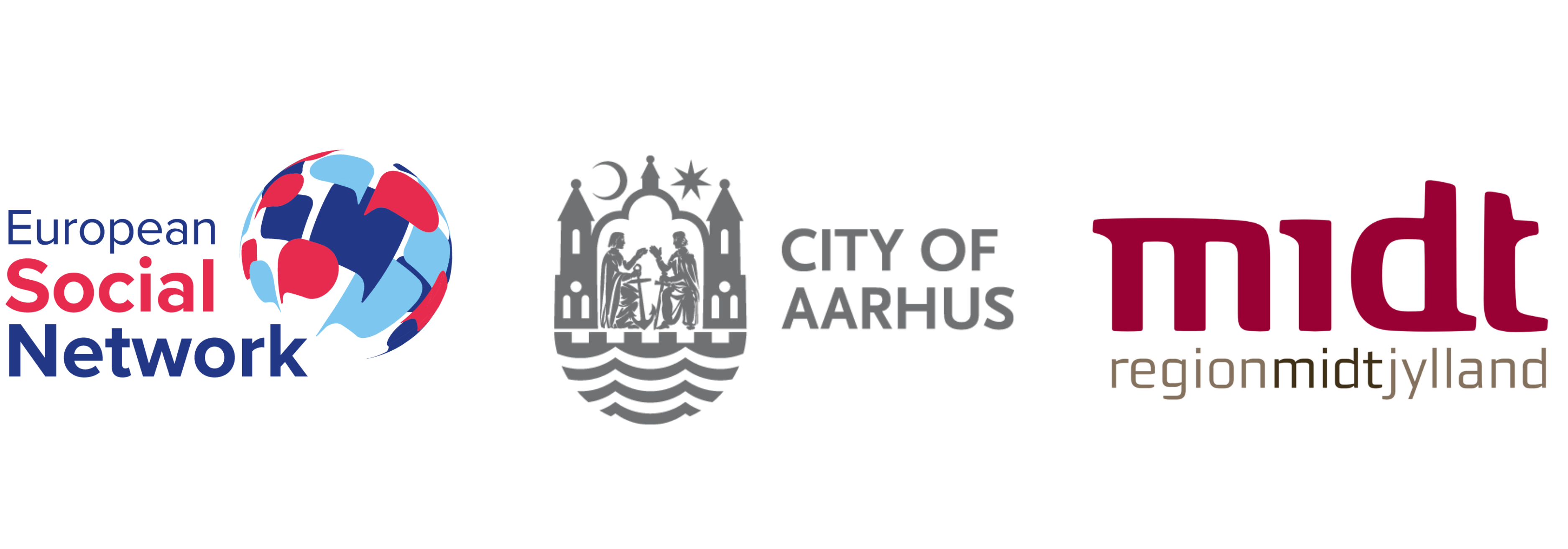Ahead of the European Social Services Conference (ESSC), taking place in Aarhus, Denmark, we highlight the key voices driving the transformation of social services through our Speaker Spotlight Series. One such prominent voice is Amanda Renteria, CEO of Code for America and one of this year’s keynote speakers. Amanda brings an insightful perspective from the United States on how technology can build more inclusive and person-centred systems that make public services more accessible, effective, and compassionate.
Leading up to her keynote address, Amanda shared her insights on human-centred design, AI ethics, and the critical role of digital innovation in delivering equitable and effective social services. Drawing on a diverse background spanning various sectors, she reflects on how systems can be reimagined to truly support the people they are designed for, ensuring that no one is left behind.
- Given your wide-ranging career across finance, education, and public service at both the state and national levels, what inspired you to take on the role at Code for America, and how does it reflect the values that have guided your work across sectors?
Throughout my career, I’ve been driven by one core belief: government can and should work for everyone, especially those who’ve historically been left out.
Code for America is about making that belief real—through technology, design, and human-centred systems. We work alongside our government partners to improve the experiences people have across the safety net, tax, and criminal legal systems.
Joining Code for America as CEO was a natural next step in my work to make policy live up to its promises in a way that delivers for people and shows what is possible.
- Your work at Code for America is grounded in person-centred design. How do you define that in practice and why is it especially important in the context of social services?
Since Code for America’s founding, human-centred design has been central to our goal of making products, digital services, and technologies that ensure government services are simple, effective, and easy to use.
At a high-level, this means starting with the lived experiences of the people we serve, not the structures we’ve inherited. In practice, it’s listening deeply, testing iteratively, and building systems that meet people where they are and treat them with respect. In social services, this approach isn’t just helpful—it’s essential. The stakes are too high for the process to be anything but compassionate, clear, and dignified.
- You’ve worked in high-level policy roles and also run for public office. How have these experiences shaped your understanding of how systems can evolve to be more inclusive and responsive?
My previous roles taught me how complex our government systems really are—and how much opportunity there is to make them better. I’ve witnessed firsthand the disconnect between the positive intent that is often behind a policy and how it shows up for families and in communities in reality.
At Code for America, we are committed to translating legislation and policy into an easy and accessible experience for people who use our tools and services. Inclusivity and responsiveness are two critical components of the work we do. They require listening to people’s needs first, improving continuously, and staying relentlessly determined to produce outcomes that matter.
- With increasing use of AI and data in public systems, how do you ensure these technologies are designed in ways that promote trust, dignity, and empathy for service users?
AI has the potential to transform how we interact with government. But, as is the case with any new technology, the goal with government adoption is lasting change. So, it is critical that governments and the civic tech community experiment with AI in a responsible manner.
For Code for America, it starts with a set of core principles that centre ethics, safety, and impact. We have to build AI and data systems that reflect the humanity of the people they serve. The use of AI must be equitable, ethical, and transparent. And there must be a strong commitment to protecting the right to privacy and data.
Civic tech should empower people—not exclude them.
- What are some of the biggest barriers you’ve encountered when trying to implement person-centred technology in government and how have you worked to overcome them?
Some of the biggest barriers to modernising government are limited budgets, a lack of internal capacity, and a reliance on legacy infrastructure. Change can feel risky, even when the current systems aren’t working well. We’ve worked through this by demonstrating impact, building trusted partnerships within government, and showing that better is possible—one service, one outcome at a time.
- Finally, what are you most looking forward to contributing to the ESSC 2025, and what do you hope to take away from the experience?
I’m excited to bring stories and insights from the frontlines of digital service delivery in the U.S.—and to learn from others doing this work globally. ESSC is a space to connect, challenge assumptions, and create a future where government works better for all communities. I look forward to leaving inspired and better equipped to keep pushing that vision forward.
Amanda Renteria’s work reminds us that while the digital transformation of social services is reshaping public systems, the core of social services must remain rooted in empathy, trust, and person-centred care. Her leadership at Code for America shows how digital tools, when designed ethically and inclusively, can help bridge the gap between policy objectives and the real-world needs of the people they aim to serve.
At the European Social Services Conference, Amanda will join a global network of experts, leaders, and practitioners dedicated to advancing relational welfare approaches and welfare technology to shape a future of social services that is both innovative and person-centred. These efforts aim not only to transform how care is delivered, but to address pressing societal challenges through collaboration, research, and knowledge exchange.
Register now to be part of the conversation!

